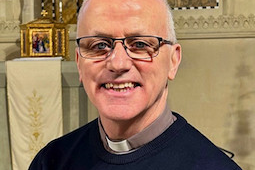Text: Zimbabwean bishops' pastoral letter
The Zimbabwe Catholic Bishops' Conference has issued 'The cry of the poor' a pastoral letter in response to the government's policy of widespread evictions and demolitions that have left hundreds of thousands homeless. The full text follows. We, the members of the Zimbabwe Catholic Bishops Conference, issued a press statement on June 2, 2005, in regard to the 'clean up' operation, dubbed 'Operation Restore Order'' in which we expressed our dismay at the suffering and hardship experienced by the most vulnerable members of society in some areas nationwide. Now, almost four weeks after the event, countless numbers of men, women with babies, children of school age, the old and the sick, continue to sleep in the open air at winter temperatures near to freezing. These people urgently need shelter, food, clothing, medicines, etc. Any claim to justify this operation in view of a desired orderly end becomes totally groundless in view of the cruel and inhumane means that have been used. People have a right to shelter and that has been deliberately destroyed in this operation without much warning. While we all desire orderliness, alternative accommodation and sources of income should have been identified and provided before the demolitions and stoppage of informal trading. We condemn the gross injustice done to the poor. As a follow-up to our press statement, we wish to offer a pastoral reflection on recent events based on Scripture and on the Social Teaching of the Church. SCRIPTURE In the gospel of Sunday, June 5, while these events were taking place, Jesus tells us "what I want is mercy, not sacrifice' (Mt. 9:13). His words reflect those of the Old Testament prophets who continually state that prayers and sacrifices are of no value unless there is concern for the poor and needy (Amos 5:1-4). There has been no concern for the poor and needy in this Operation and the prayers and offerings of those responsible find no favour before God. The prophet Isaiah reminds us "to share our bread with the hungry, to shelter the homeless poor and to clothe the man seen to be naked .... (Is 58:5-7). The entire ministry of Jesus is marked by concern for the weak and vulnerable. Jesus tells us that we will be judged at the end of time on whether we have shared this concern, and he has terrible words to say to those who saw him hungry, thirsty, a stranger, or naked, or sick (or homeless ...) and neglected to help him (Mt. 25:42 -46). As Christians we must hear the cry of the poor and the homeless in our townships and villages and support them in their efforts to gradually rebuild their lives. In this task we should be motivated and guided by the Social Teaching of the Church. THE SOCIAL TEACHING OF THE CHURCH The Social Teaching of the Church sheds the light of the gospel on issues that affect our lives in society, and offers the church's wisdom, insight and experience in dealing with them. This teaching, based on scripture, has developed over more than a hundred years, and is mainly found in Papal letters and documents emanating from Synods and Conferences of Bishops. It contains a number of principles, which are particularly relevant at this time: 1. The Dignity of the Human Person Created in the image and likeness of God (Gen.1:26-27), each person has an innate human dignity, given to us, not by secular authorities, but by the Creator himself. This dignity was gravely violated by the ruthless manner in which 'Operation Restore Order' was conducted in the townships and other areas. Every violation of the personal dignity of the human being cries out for vengeance to God and is an offence against the Creator of the individual (Christifideles Laici, 37 - Pope John Paul 11). 2. The Basic Rights of the Human Person Basic human rights are an offshoot of our God-given dignity. Every human being - man, woman and child - has the right to life, shelter, clothing, food, education, health care, employment, etc. These basic rights have been and are being violated. No secular authority, no group, or no individual should be allowed to violate such rights. As Christian leaders we must continually remind authorities of both their duty to respect and uphold human rights, and of the serious consequences of failure to observe such rights. Furthermore, it is our duty as a teaching Church to form and educate Christian people in rights, values and principles - a task that we will continue to perform. 3. The Promotion of the Common Good Public authorities should promote the common good of all members of society - not the good of an elite group - by creating an environment in which economic, social, cultural and political life can flourish. In such an environment all citizens - including those who have lost their homes and livelihoods - can have access to the goods of the earth which are intended by God to be equally shared. The promotion of the common good should be the first priority of public policy, not the promotion of party political aims. "It is the proper function of authority to arbitrate, in the name of the common good, between various particular interests; but it should make accessible to each what is needed to lead a truly human life: food, clothing, health, work, education and culture, suitable information, the right to establish a family, and so on.' (Catechism of the Catholic Church, 1992, par. 1909) In the order of things, people always come first and cannot be subservient to an economy, a political agenda or an ideology for that matter. 4. The Option for the Poor In the application of the principle of the common good, some people remain poor and marginalised. The church must show particular concern for them. The moral test of a society is how it treats its most vulnerable members. As Christians we must continue to examine public policy decisions, including policies related to housing, health care and food security, in terms of how they affect the poor, and bow our heads in shame at the nation-wide operation that has greatly increased poverty and destitution in all areas. The interference with informal trading, which supports formal trading, can only accelerate our economic decline. The option for the poor, most of whom are informal traders, is an essential part of society's effort to achieve the common good of all its members. To the Church, the poor are a treasure (St. Laurence, in Butler, Lives of the Saints, 10 August). 5. Subsidiarity The principle of subsidiarity refers to passing powers downward from the top to the grassroots, or as close to the grassroots as possible. The principle implies a preference for local over central decision making. Central authority should support local authority efforts and only undertake those tasks which local bodies cannot achieve. If there is a 'clean-up' required on our streets or if there is a problem of criminality in the townships, it is essentially the task of local authorities - including community/residents associations and church bodies - supported by the police and the courts, to deal with these problems. This should take place in an ordered process over a period of time, and in a way that promotes and preserves human dignity, people's rights and the common good. 6. Solidarity As sons and daughters of our loving Father, we are all sisters and brothers who are called by God to build a society where we can live together in solidarity with each other. Solidarity means being ready to see the other person as another "self" and to regard acts of injustice done to others as done to oneself. Solidarity is not a passing feeling of distress at the suffering of others. Rather, it is a commitment to stand side-by-side with those who are without shelter and means of livelihood, to do what one can do to rectify a situation of grave injustice, and to promote the common good. The principle of solidarity reflects St. Paul's theology of the body of Christ: where one person suffers, each person suffers and the whole body is weakened (1 Cor 12:12-30). Reflection on the above six principles should concern all members of society, for a whole nation has suffered because of recent and ongoing actions. Specifically as Christians, we cannot pick and choose which principles we wish to follow; all of them are binding. Putting them into practice in daily life is as important as going to Church on Sundays. Finally, we repeat what we said on a previous occasion: '...we call upon all those (Christians in particular) who hold special responsibilities in society, be it government, the business community or other spheres of influence, to exercise your duties according to the social teaching of the Church .....We cannot lead a double way of life, one for Sunday services in Church and another for our public tasks, be they political, economic, social or other kind. We are always called to be guided by our conscience and to live our Christian faith as an integral part of our lives ' (ZCBC, Lenten Pastoral Letter, March 2003, Par.7:3) As always our prayer for you is PEACE BE WITH YOU. +Mt Rev Robert C Ndlovu of Harare +Mt Rev Pius Alec M. Ncube of Bulawayo +Rt Rev. Michael D. Bhasera of Masvingo (ZCBC President) +Rt Rev Alexio Churu Muchabaiwa of Mutare +Rt Rev Angel Floro of Gokwe +Rt Rev Patrick M. Mutume, Auxiliary Bishop of Mutare Very Rev Fr Alphonse Mapfumo - Administrator of Gweru Very Rev Fr Matthew Jonga - Administrator of Chinhoyi Very Rev Fr Albert Serrano, SMI - Administrator of Hwange


















